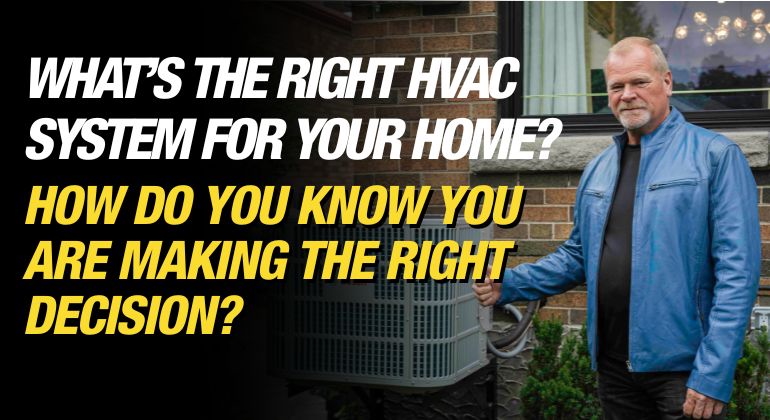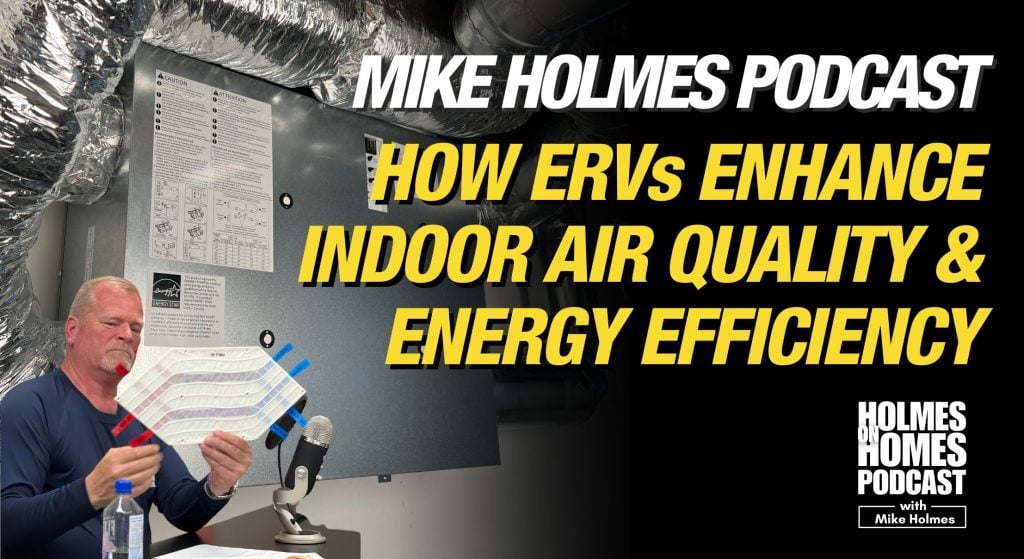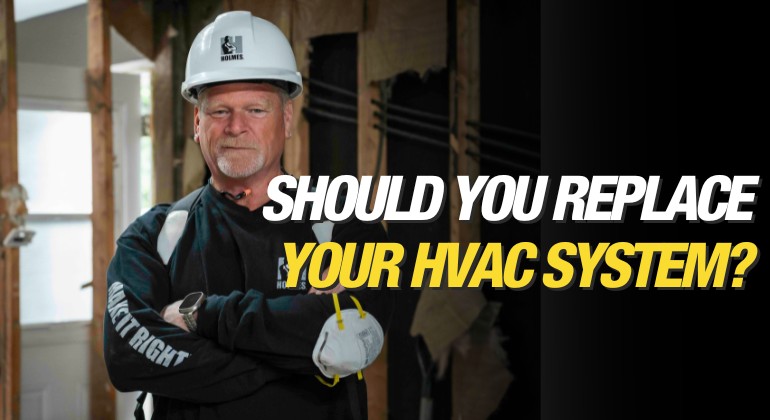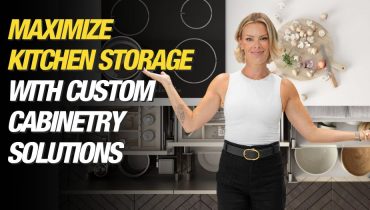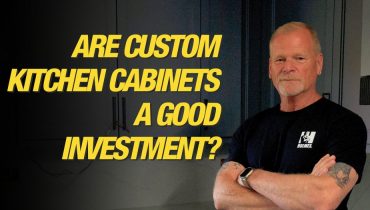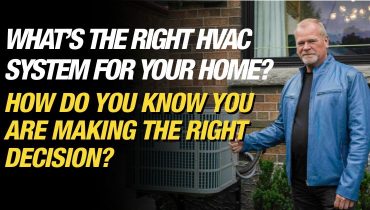Dream of a career where your skills bring joy, enable freedom, and create unforgettable memories? The thriving recreational vehicle (RV) industry offers just that! It’s more than fixing vehicles; it’s...
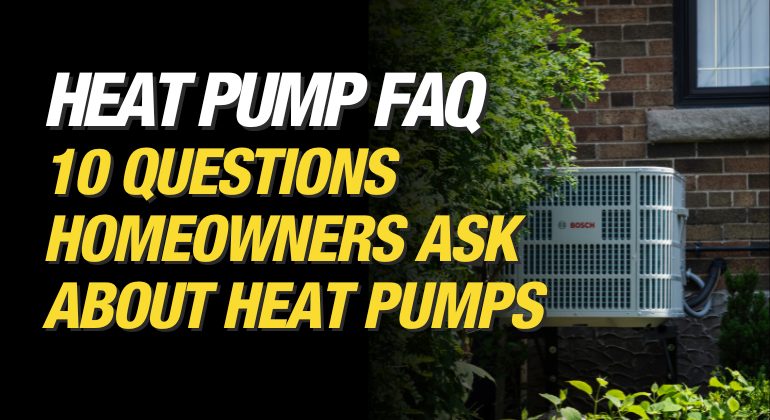
10 Heat Pump Questions Homeowners Ask
By Mike Holmes
Mike’s Advice / Home Safety & Maintenance
Wednesday, January 24th, 2024 @ 10:37am
Heat Pump FAQ
I’ve been getting a ton of questions about heat pumps which I love because that means people are starting to consider these energy-efficient heating and cooling systems. Whether you’re considering adding them to your existing HVAC setup or making the bold move to ditch your old furnace, a heat pump has a lot to offer. But like I always say it’s important to do your research and ask lots of questions. Consult with an HVAC professional to make sure you are making the right decision for your home. This is a big investment after all.
While I’m not an HVAC expert, I consulted with the Bosch experts to get answers to your most asked questions on heat pumps.
#1 – What Are The Different Types Of Heat Pumps?
There are three main types of heat pumps: air-source, water source, and ground source or geothermal heat pumps. Here’s the difference between all 3 of them.
- Air source heat pumps (known as air-to-air) are inexpensive to install and highly efficient in moderate climates. They use outside air for heat exchange to heat and cool your home. Air source heat pumps come in both ducted and ductless versions.
- Water source heat pumps use water instead of air to heat and cool. However, this requires having access to a well, lake or other water source.
- Ground source or geothermal heat pumps take the thermal energy stored in the ground, transferring heat similar to air source heat pumps. Due to the consistent temperature of the ground these systems are more energy-efficient to operate. However, they are more costly and complicated to install, as they require excavation and underground piping.

We’ve installed the Bosch air source heat pumps on a lot of of our projects. They’re built to last, are very quiet, and are super energy-efficient.
#2 – What Are Mini-Split Heat Pumps?
Mini-split heat pumps work similarly to air-source heat pumps. They work using electricity to pump refrigerant through the system and transfer heat from one space to another. Mini-splits funnel air flow directly into a specific zone (or multiple zones) in the house.
How Do Mini-Splits Differ From Traditional Heat Pumps?
Traditional heat pumps work through a duct system distributing hot or cold air from a central unit to vents in each room.
Mini-split heat pumps, on the other hand, are ductless systems. These systems are ductless, utilizing a series of interior heads strategically placed throughout your house connecting to one main outdoor unit. This offers a more flexible and localized heating and cooling solution.

We recently installed a Bosch Mini-Split Climate 5000 heat pump on a new home addition project we worked on.
RELATED:
Exploring Bosch Mini-Split Heat Pump Energy Efficiency & Features
#3 – Heat Pumps Are Only For Heating, Not Cooling?
Not true. To cool your home heat pumps extract heat from inside and push it outside. To provide heating, it does the reverse. Heat pumps transfer heat, rather than generate heat and work efficiently to provide comfortable temperatures in your home all year long.
#5 – Are Heat Pumps Energy Efficient?
YES! Heat pumps have become popular for their energy efficiency.
These systems are more energy-efficient than traditional heating and cooling technologies since they work by moving heat from one place to another as opposed to generating it. Their ability to extract heat from the earth, water, or air offers a sustainable and environmentally friendly method of managing indoor temperatures. This feature minimizes the carbon footprint, in addition to lowering energy usage saving you money.
RELATED:
#6 – Can A Heat Pump Replace A Furnace?
YES. If you live in an area where electricity is affordable, installing a heat pump can be your best option. This is especially true if your home is already well-insulated and you need to replace your furnace or air conditioning equipment.
Heat pumps are a more energy-efficient, greener method of heating and cooling your house, and you will lower your energy bill.
Go with an inverter heat pump. With inverter systems, you don’t have to deal with the uncomfortable temperature jumps that are caused by frequent on-and-off cycles. Inverter heat pumps can self-adjust to keep the temperature in the room nice and steady.
I recommend checking out Bosch’s Inverter Ducted Split (IDS) systems. They are high quality and super-efficient.
RELATED:
#7 – Are Heat Pumps Noisy?
NO! Some of today’s models are some of the quietest on the market. The Bosch IDS heat pump we’ve installed on our projects are compact and silent air-to-air system. Their outside sound levels can go as low as 56 dBA.
#8 – Do You Need Ductwork To Install A Mini-Split In Your Home?
No. With mini-splits, there is no ductwork required! This is why mini-splits are perfect for smaller spaces or new additions to your home.
We installed a Bosch Climate 5000 mini-split heat pump in the sunroom we did at Frank’s house in Holmes Family Rescue, making it a usable space all year long. It’s also perfect for a top-floor bedroom of an older home where the venting may not be as efficient.
A mini-split is also easier, and less messy to install for your contractor. Plus, mini-splits can help keep your renovation costs down since you’re not opening up your walls to redirect existing ductwork.
How do heat pumps heat and cool multiple rooms if you don’t need any ductwork?
Mini-split heat pumps efficiently heat and cool multiple rooms without the need for ductwork using a technique called zone heating and cooling. Instead of using ducts, these systems use indoor units or individual air handlers positioned strategically throughout the house.
These units are responsible for heating or cooling the air within specific zones or rooms. Connected to an outdoor unit, the heat pump transfers heat from one space to another using refrigerant lines.

The Bosch mini-split heat pump is a ductless system. The system only needs a 3” diameter opening for running the lines. Always make sure to hire an HVAC pro for installation.
Mini-splits allow you to combine one outdoor unit with up to five indoor units for each of your rooms or zones. We install Bosch mini splits and heat pumps on many of our new projects.
One big advantage of Bosch’s multi-zone ductless system is that you can customize the temperature for each room. For example, your bedroom can be cooler than your family room. This creates a more comfortable environment for you at home and allows you to save energy over time. You also get a multi-part air filter system with a Bosch mini-split as well —which is great for indoor air quality.
#9 – Do You Have To Clean A Heat Pump?
Clean or change the filters once a month or as often as needed. Also, clean the outside of the unit and the area surrounding the coils of any dirt or debris as this will ensure there are no obstructions with the airflow.
I also recommend doing regular maintenance by an HVAC specialist. While a yearly check is recommended, I would do it twice a year —once in the spring and once in the fall.
RELATED
Guide to Heat Pump and Furnace Maintenance: Tips to Keep Your System Running Smoothly
#10 – How Long Do Heat Pumps Last?
Today’s heat pumps can last an average of 15-20 years. However, you must do regular maintenance and service, including cleaning or changing filters to ensure optimal performance and lifespan.
The Bosch IDS heat pumps, which I recommend, also comes with a 10-year compressor and parts warranty.
#11 – What Is The Best Type Of Heat Pump?
The best type of heat pump for your home is based on several factors, like where you live (climate), the size and construction of your home, ductwork, and the heating and cooling needs.
When considering a new HVAC system, consider how different heating and cooling systems will affect the temperature, energy use and air quality in your home. Pay attention to the system ratings and capacity identified by BTUs (British Thermal Units). Typically, the capacity increases as the BTUs get bigger.
RELATED:
Any newly manufactured HVAC system comes equipped with a programmable or smart thermostat, which is practical and promotes energy efficiency.
I always recommend hiring a professional to install your HVAC. They can help you pick the right system and size to meet your home’s needs —and they will install it right.
If you’re considering a Bosch system, which I recommend, you can find a certified Bosch installer in your area by visiting BoschHomeComfort.US and clicking find an installer. Check if there are any taxes or rebates available in your area that can help you save on the initial costs.
RELATED:
DUCTED HEAT PUMPS: Bosch Inverter Ducted Split System Review
Compared to conventional heating and cooling systems, heat pumps save a significant amount of energy since they transfer heat rather than produce it. By optimizing energy efficiency, heat pumps help create a more sustainable and environmentally friendly future in addition to reducing your utility costs. I hope this series of questions will help you understand why heat pumps are a great heating and cooling option for your home.
READ MORE:
Heat Pump Systems: What You Need To Know
